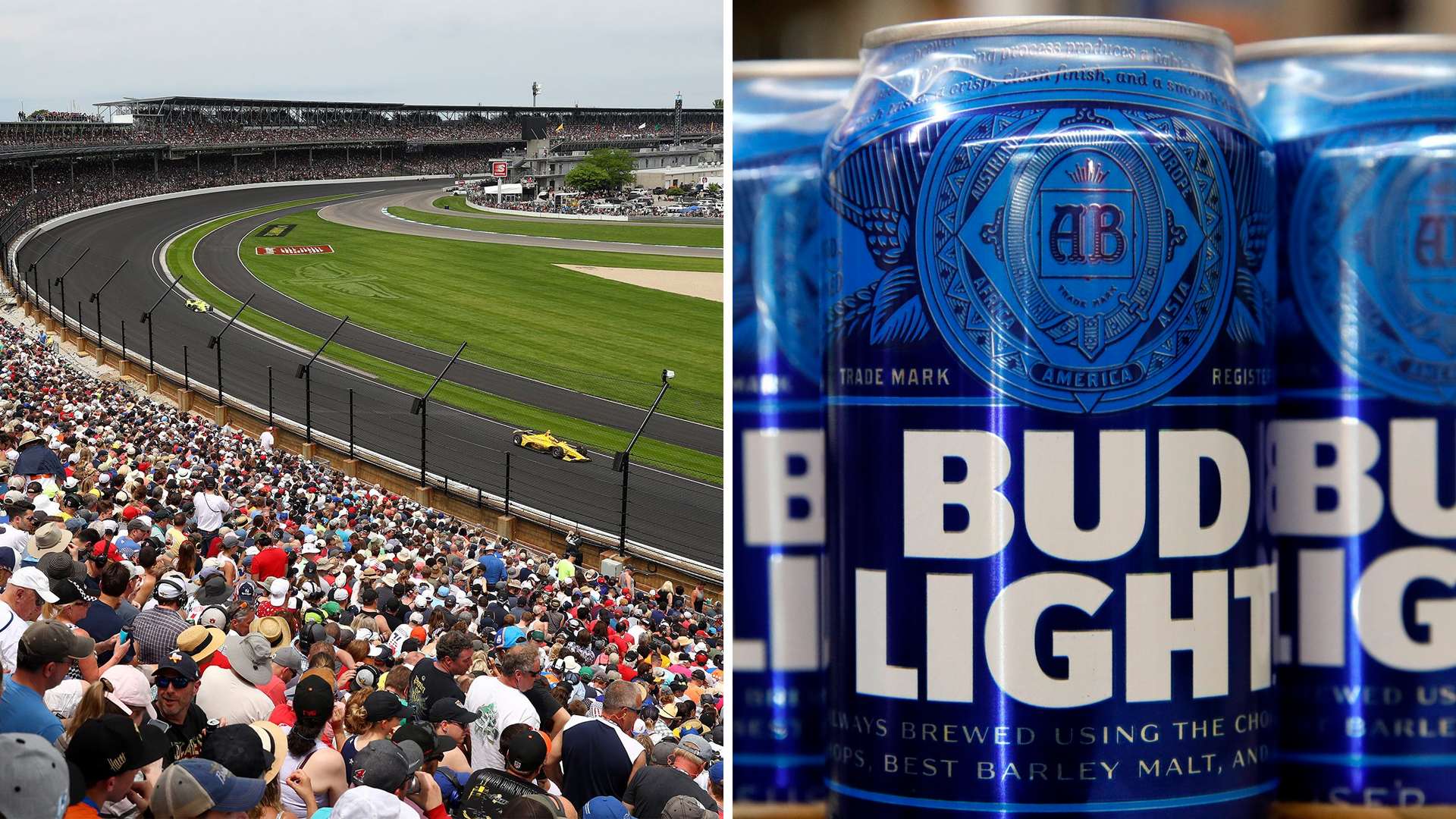The Indianapolis 500, an iconic and grand spectacle in the world of motorsport, is a destination not just for race car enthusiasts but also for people who revel in the electric atmosphere of high-speed competition. But this year’s event saw a peculiar phenomenon, one that had little to do with the cars zipping around the Indianapolis Motor Speedway and more with the type of beer that over 300,000 fans chose to bring along. Surprisingly, amidst a sea of beers, there was nary a Bud Light to be seen.
Bud Light, a product of Anheuser-Busch and a long-time staple of American sporting events, has had its image dented in recent times due to a controversial marketing campaign. Anheuser-Busch had featured transgender TikTok star Dylan Mulvaney in a campaign promoting their “Easy Carry Contest.”
However, the backlash was swift and significant, with detractors ranging from the common beer drinker to high-profile figures like rock musician Kid Rock. The latter took to social media to destroy cases of Bud Light with an AR-15 in protest, contributing to a plunge in sales of the popular beer brand.
Despite the company’s attempts to mitigate the damage by offering to buy back unsold stock, the repercussions of the campaign were strongly felt at the Indy 500. In an event where fans were given the unique privilege of bringing their own beers, the notable absence of Bud Light became a stark symbol of consumer sentiment.
As more than 300,000 fans flooded the Indianapolis Motor Speedway with a kaleidoscope of beers, the lack of Bud Light was more than an observable fact; it was a loud statement. It was a signal from consumers, a commentary on the importance of company values aligning with their own, and a clear message that decisions have consequences.
Simultaneously, the absence of Bud Light also shed light on the power of choice. Fans were not merely passive spectators but active participants in this silent protest. They expressed their disagreement not through aggressive actions but through the power of choice – a fundamental right in any consumer market.
While the whole episode indicates the commercial ramifications for Anheuser-Busch, it also emphasizes the evolving dynamics of consumer behavior. Consumers today are more conscious of the brands they associate with, their values, and how they align with their own. They hold the power to make or break a brand and aren’t afraid to exercise it.
The Bud Light episode also serves as a stark reminder for businesses operating in the current market. Today’s consumers are not just buying a product; they are buying into a brand’s values, beliefs, and ideologies. Companies can no longer afford to be indifferent to societal issues, for their stance can significantly impact their brand image and, consequently, their bottom line.
Coming back to the Indy 500, as fans cheered on their favorite drivers and reveled in the excitement of the race, the absence of Bud Light amongst the variety of beers in their hands silently echoed around the racetrack. It was a reminder of the power consumers wield and a symbol of the changing landscape of brand allegiance.
Looking forward, companies like Anheuser-Busch have a challenging task ahead. They will need to navigate this new era of consumer consciousness carefully, balancing their marketing strategies with societal sensitivity. The Indy 500 Bud Light incident will likely serve as a crucial case study for marketers worldwide, underlining the importance of aligning brand values with societal evolution and customer expectations.
In conclusion, the Indy 500, known for its exhilarating races and vibrant atmosphere, has added another feather to its cap. It has now become a testament to the evolving power dynamics between consumers and brands, underlining the need for companies to tread carefully in their quest for market dominance.
As the echoes of roaring engines and cheering crowds fade away post-event, the silence left by Bud Light’s absence continues to reverberate throughout the corporate world. The event has served as a potent reminder of the rapidly changing corporate landscape, where inclusivity, diversity, and societal values are no longer peripheral to a brand’s image but lie at its very core.
In the aftermath of the Indy 500, Anheuser-Busch and other companies will need to critically evaluate their marketing strategies and campaigns, ensuring they do not alienate any segment of their consumer base. They must remember that in the age of social media and widespread information, every action, every campaign, and every public stance is under intense scrutiny.
Even as the Indy 500 continues its legacy of thrilling races, it has become a symbol of consumers’ power in the marketplace. The fans’ choice to bring their own beer — and specifically not Bud Light — encapsulates the ongoing shift in the consumer-brand relationship. The people have spoken, not through words, but through the simple act of choosing their beer.
As businesses globally take note of this striking event, one thing becomes crystal clear: the need for corporations to pay heed to societal shifts and consumer sentiment is more pressing than ever. The Indy 500, a sporting event known for the sound of roaring engines and cheering crowds, may very well be remembered this year for its silent yet powerful message of consumer sentiment.
In the end, the Indy 500 has always been about more than just the race. It’s about the fans, the atmosphere, and now, even the beer. While the race continues to be a heart-pounding event, the real story this year may be the sea of fans, their beers held high, and the stark absence of a one-time favorite. In this tale, we see the essence of consumer power and the increasing importance of aligning brand values with societal norms, proving once again that the Indy 500 is more than just a race; it’s a reflection of our evolving society.

